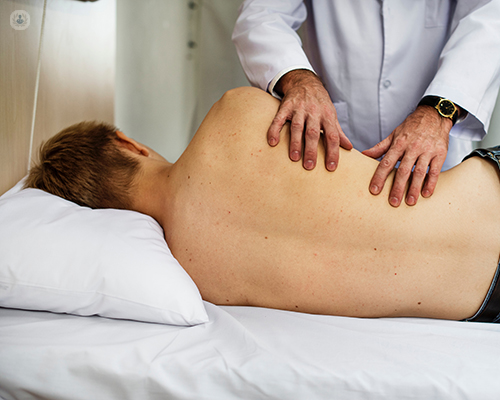What lifestyle changes can help patients with kidney disease?
Autore:Having kidney disease means your kidneys’ ability to filter and clean your blood is hindered. This can have several effects on your health because without well-functioning kidneys, your body is not able to remove toxins from the body. Polycystic kidney disease (PKD) is one type of kidney failure. However, if your kidney disease is not advanced, certain lifestyle changes can help to reduce symptoms and to provide longevity to your kidneys. Dr Peter Hill, a renowned nephrologist, discusses the symptoms of PKD, and the lifestyle modifications that are necessary for those diagnosed with kidney disease.

What are the signs of polycystic kidney disease?
Polycystic kidney disease is one of the more common causes of kidney failure. It is an inherited condition where lots of cysts grow and develop in the kidney, eventually replacing normal kidney tissue. Once these cysts grow, they can cause pain in the flank where the kidneys are. You may also get urinary infections and you might see blood in the urine if those cysts grow and erode into a blood vessel within the kidneys themselves. Kidney stones are more common as well in patients with polycystic kidney disease.
Kidney failure can also develop symptoms of:
- Tiredness
- Lethargy
- Shortness of breath
In some people with polycystic kidneys, the cysts grow and grow and the kidneys can become the size of rugby balls. Hence, in such cases, this causes severe tummy distension, which causes back pain as a result.
The signs and symptoms of kidney disease from polycystic kidneys can, however, be quite variable. Some experts in polycystic kidney disease can offer treatments that can reduce those symptoms.
What are the lifestyle changes you need to make if you are diagnosed with kidney disease?
If you are diagnosed with polycystic kidneys or kidney disease, lifestyle modifications are really important. To start with, if you are a smoker, you really need to quit. Smoking is, of course, not good for your heart and lungs, but also it is not good for the overall health of your kidneys. In addition, you should not be underestimating how important regular exercise is. Exercising for 20 minutes three or four times a week will not just keep your weight under control, but it can also help to control your blood pressure, which is really important for the kidneys.
Healthy kidneys play a part in getting rid of salt from the body. Hence, if there are kidney problems, salt can be retained. Therefore, it is important to eliminate your intake of salt, and you will be able to do this by knowing what salts are in your diet and the food you are eating. You should aim to limit your salt intake to under 5 grams per day, and ideally restrict it to almost zero. You should keep away from salty snacks, ready meals, and bread. By limiting your intake of salt, it will help to keep your blood pressure at a normal level and this may well help your kidneys keep going for longer.



